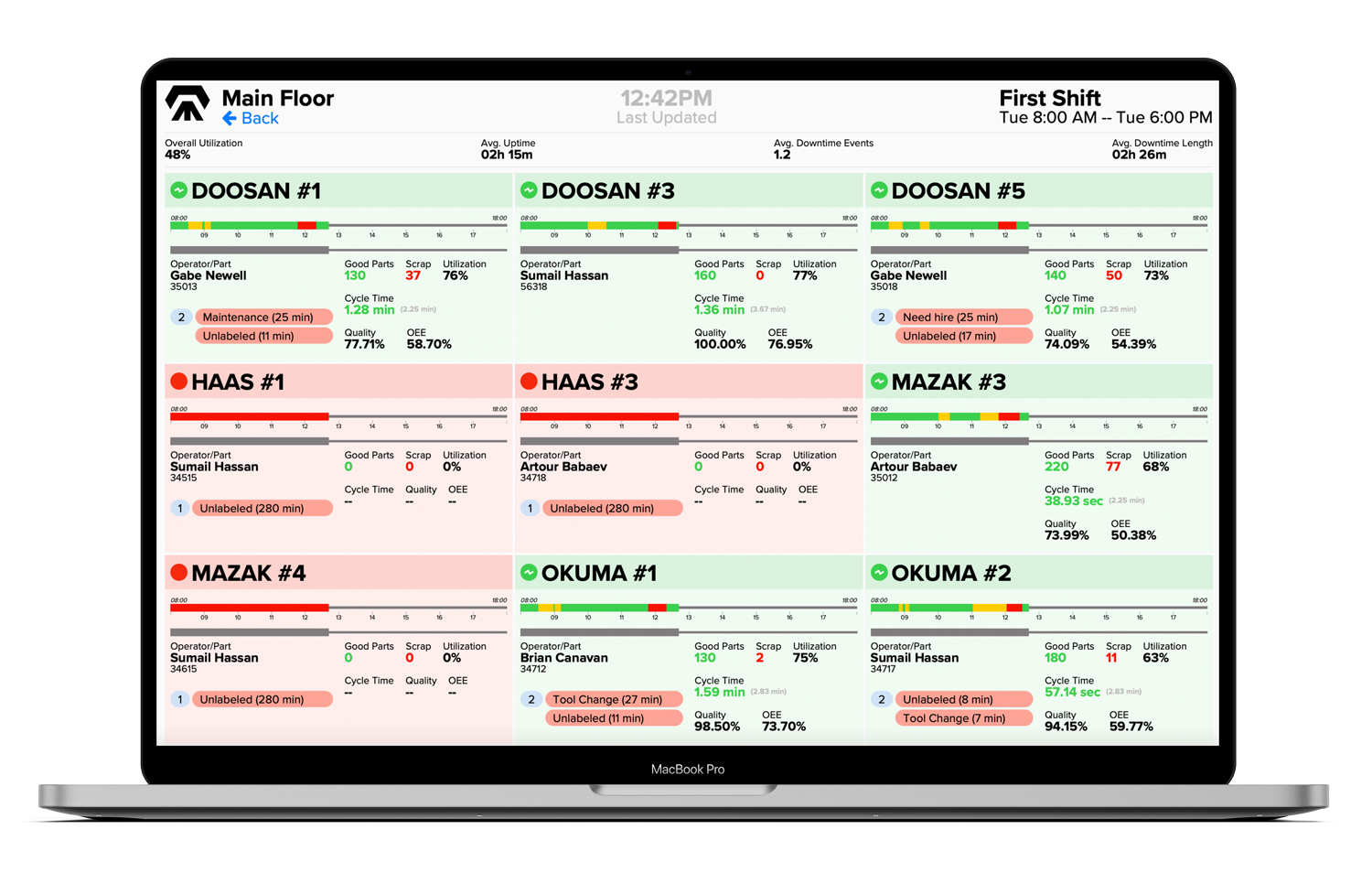It took a pivot for Amper to find its footing. Founded in 2016 with hopes of building a smart circuit breaker for the home, the company had to take a long look at the their place in the market — or lack thereof.
“We got into HAX with that idea, and then completely invalidated it,” co-founder and CEO Akshat Thirani says with a laugh. “For a few weeks, we were just in a kind of limbo. We knew there’s a lot behind electricity, based on the home energy data we’ve seen. I was in Shenzhen. Everything just collided, and a new company — in a sense — was born.”
Thirani says he drew on his childhood in India for inspiration, coming from a family that ran factories for several generations. Formed in Chicago, where its founders went to school at Northwestern, the team developed a system designed to help drag manufacturers into the 20th century.
Amper’s technology is effectively a plug and play solution that retrofits factory machines. The small boxes plug into the wall and clamp on to the machine’s cord to measure energy flow. From there, it can extrapolate key information, including output and whether the system is online.
“We ship out this DTC box,” says Thirani. “It’s kind of a DTC, self-installed kit. It takes about 10 minutes to install on any type of machine. That’s been our growth engine. We just give it away, folks can try it for free and take the product for a spin. We’re deployed in 250 factories, globally. After that initial product-fit stage, we’ve been exclusively doing remote sales.”

Image Credits: Amper
From there, the system takes around a week to fully calibrate. After that on-boarding period, all of the pertinent information is available in a single dashboard, including the machine’s status and the number of parts it’s output. The insights it collects ultimately aren’t as deep that those that might come from a new machine with built-in sensing, but it’s a bit of a tradeoff that comes with the ease of installation and price. Effectively it’s a low barrier of entry for digitizing factories’ existing systems.
Having already raised a $3.5 million seed, the company today announced an $11 million Series A led by Lewis & Clark Ventures and featuring Foundation Capital, Corazon Capital, Slow Ventures, SOSV, Converge VC and GTMfund. The funding will go, in part, to building out the team from just under 20 to more than 50 in the coming years. It will also be used to commercialize its existing product and future R&D.
“Manufacturing is huge,” says Thirani. “You want to build products that are consumerized and accessible to all kinds of manufacturers. I had this memory with my dad — if you wanted to buy any kind of technology, you had to talk to salespeople and consultants. I had this vision that you should be able to go on the website, buy a product, know exactly what it costs and just have the same expectation that we do as consumers.”

